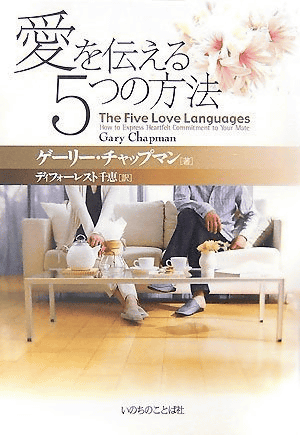Research results show that the ``5 love languages'' used in compatibility with partners are ``happy with any form of love with your partner.''

The ``Five Love Languages'' proposed by author Gary Chapman are used to talk about compatibility with a partner, but experts have pointed out that they are baseless. Gideon Park of the University of Toronto and his colleagues conducted a survey of couples and concluded that they would be happy to hear their partner speak a love language that is not their favorite.
Popular Psychology Through a Scientific Lens: Evaluating Love Languages From a Relationship Science Perspective - Emily A. Impett, Haeyoung Gideon Park, Amy Muise, 2024
'You cannot put people into arbitrary boxes': Psychologists critique the '5 love languages' | Live Science
https://www.livescience.com/health/relationships/you-cannot-put-people-into-arbitrary-boxes-psychologists-critique-the-5-love-languages
Chapman published ``The Five Love Languages: How to Express Heartfelt Commitment to Your Mate.'' in 1992, which has been featured in the New York Times and has sold over 20 million copies. It became a bestseller.
5 ways to express your love | Gary Chapman, Chie Deforest | Book | Mail order | Amazon

Mr. Chapman explains that there are five languages for love: words of affirmation (praise), quality time, gifts, dedication, and physical contact. They claimed that partners who preferred their love language had higher relationship satisfaction.
In 2022, a paper was published showing that people who communicate their love in the ``love language'' desired by their partner are more likely to be satisfied with their relationship.

However, there have long been doubts about the effectiveness of ``Languages of Love''.
Gideon Park, a doctoral student studying psychology at the University of Toronto, and his colleagues have published new research on this ``language of love.'' 'I'm not saying that 'love languages' are outdated, but that they lack scientific basis,' Park said.
Mr. Park conducted a survey on the ``love languages'' of couples, saying that it is counterintuitive to think of the 5 ``love languages'' as comparing or opposing each other.
They found that people were more satisfied when their partner used their preferred love language. This seems to support Mr. Chapman's claim, but in reality, even when using a 'love language' that is not one's favorite, satisfaction increases as well, and regardless of one's preference, all 'love languages' The language of love has been shown to have positive effects.

Based on this, Mr. Park proposes a new framework that compares love to food. In other words, just as carbohydrates alone may be fine for a while, but you also need protein, fat, and vitamins to stay satisfied, don't stick to one 'love language.' The important thing is to use it according to your needs.
Related Posts:
in Note, Posted by logc_nt






